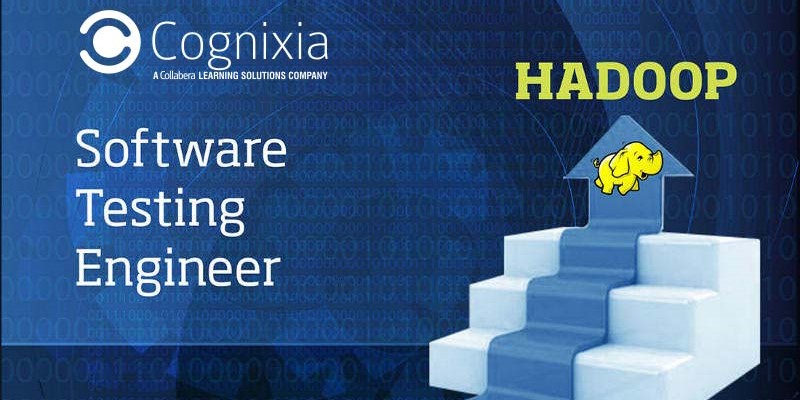Observing the past trends, we can easily figure out the growth rate of Hadoop-related jobs. This number is much higher when compared to software testing jobs. The maximum growth rate of software testing jobs has been 1.6 percent approximately as opposed to Hadoop-based testing jobs which have been recorded to be a whopping 5 percent. There are certain limitations in the current testing practices when testing applications in finding solutions for Big Data problems.
These reasons have made testing professionals steer towards the Hadoop platform. One of the major reasons is that the software testing approaches are driven by data (for e.g. skewness of data, data sets size and mismatch etc.) rather than testing scenarios. Secondly, the standard data matching tools like Windiff etc. are unable to work with large amounts of data. This, in turn, becomes a limitation for a software testing engineer.

It is best for mid-sized data to be verified using input data set by the application of business logic on the small set of input by exposing it as HBase tables. On the other hand, for large-scale data, Big Data techniques provide engineers with skill sets that are used for testing complex data sets.
If you look at any job posting for a Hadoop Testing professional, you will see that testing skills are not only required but also form the foundation of such jobs. Thus, all that a Software Testing Engineer needs to become a Hadoop Tester is to acquire Big Data/Hadoop skills. It is obvious to get a little skeptical about making a shift into a new territory like Hadoop and Big Data. But before jumping to any conclusion, one must understand that Testing and Hadoop are not mutually exclusive.
There is a certain set of skills and platforms which can be used between them. The number of these skills that can be used in alignment with Big Data and Hadoop is more than one. This makes the transition rather smooth. Skills like Java, SQL and Linux are mutual when between Testing and Hadoop. Also, application platforms like MQSeries, Oracle, Apache, and Tomcat etc. are common between these two spectrums.
The variety of new data sources is growing like never before and this has forced the organizations to look for streamlined options for managing data complexities in order to reap most out of their data related investments. In an attempt to manage their data correctly, organizations are realizing the importance of Hadoop for the expansion and growth of the business.
According to a study done by Gartner, an organization loses approximately 8.2 Million USD annually through poor data quality. Ironically, this happens when 99 percent of the organizations have their data strategies in place.
The reason behind this is simple – the organizations are unable to trace the bad data that exists within their data. This is one problem which can be easily solved by adopting Hadoop testing methods which allows you to validate all of your data at increased testing speeds and boosts your data coverage resulting in better data quality.
The facts and figures stated above clearly show how Testing is undergoing a transformation but that does not mean that this is the end. At the same time, it wouldn’t be wrong to say that with changing times, it is imperative to adopt new techniques like Hadoop considering all its features and flexibility.
At Cognixia, we have specialized training courses for Hadoop. Our training takes you through the entire Hadoop cluster and gets you acquainted with its related features like Pig, Hive, HBase, and Sqoop etc. If you are a Testing professional who aspires to give his career an unprecedented growth, then enroll for our Hadoop training today and give yourself the required edge. For further information, feel free to write us

